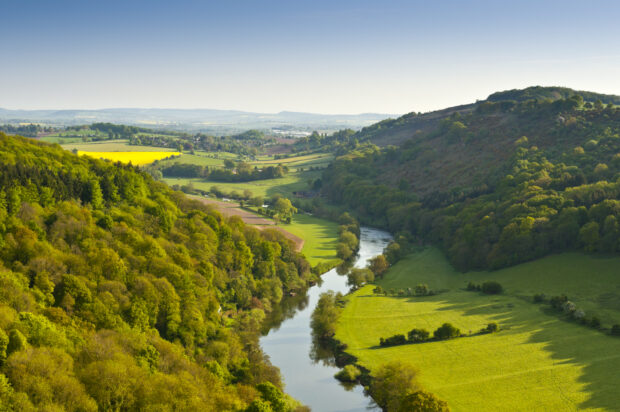- Location
- Glen Clova, Angus, DD8 4RD
Copying this DEFRA news item here as it will be seen more and has big implications, especially for those in the Wye catchment
High court ruling on Farming Rules for Water
Written by Defra Press Office

Today (24th May) the High Court has rejected all claims that the Environment Agency has failed to effectively enforce its Farming Rules for Water (FRfW).
In his ruling, Justice Dove found no fault with the Environment Agency’s approach to enforcing the Farming Rules for Water, noting that its approach has been ‘grounded in the correct interpretation of the 2018 Regulations’.
This judgment reflects the important work being done by the regulator with farmers to reduce diffuse pollution and ensure compliance with regulatory obligations in the FRfW in order to protect England’s watercourses from agricultural pollution.
The FRfW were drawn up in 2018 with input from agricultural and environmental stakeholders to build on the good progress that many farmers are already making to tackle pollution as a result of their activities. The Rules set out that farmers are responsible for always taking reasonable precautions to minimise the risk of pollution from applications of nutrients to land and livestock management.
If breaches of these regulations are identified, the Environment Agency will not hesitate to take appropriate action, up to and including enforcement.
An Environment Agency spokesperson said:
Farming Rules for Water are just one means of managing nutrient load. Further key actions include:
Follow Defra on Twitter, and sign up for email alerts here.
Continue reading on Defra Website...
Judgement pdf here:
View attachment River-Action-v-Environment-Agency.pdf
High court ruling on Farming Rules for Water
Written by Defra Press Office

Today (24th May) the High Court has rejected all claims that the Environment Agency has failed to effectively enforce its Farming Rules for Water (FRfW).
In his ruling, Justice Dove found no fault with the Environment Agency’s approach to enforcing the Farming Rules for Water, noting that its approach has been ‘grounded in the correct interpretation of the 2018 Regulations’.
This judgment reflects the important work being done by the regulator with farmers to reduce diffuse pollution and ensure compliance with regulatory obligations in the FRfW in order to protect England’s watercourses from agricultural pollution.
The FRfW were drawn up in 2018 with input from agricultural and environmental stakeholders to build on the good progress that many farmers are already making to tackle pollution as a result of their activities. The Rules set out that farmers are responsible for always taking reasonable precautions to minimise the risk of pollution from applications of nutrients to land and livestock management.
If breaches of these regulations are identified, the Environment Agency will not hesitate to take appropriate action, up to and including enforcement.
An Environment Agency spokesperson said:
We remain committed to protecting watercourses and working with farmers to meet their regulatory requirements and reduce diffuse pollution, and we are working to implement a more preventative, advice-led approach to monitoring and enforcement.
Since 2021 we have performed more than 10,000 farm inspections and required farmers to carry out over 17,000 improvement actions, including around the River Wye. These range from improving slurry storage to better management of nutrients. Our inspection regime is supported by the use of technology such as satellite images and drone footage.
Anyone caught breaching environmental laws faces enforcement action, up to and including prosecution.
Farming Rules for Water are just one means of managing nutrient load. Further key actions include:
- Rigorous farm inspections, with more than 4500 inspections carried out last financial year and over 7500 improvement actions issued. In 2020, 50 new Agricultural Regulatory Inspection Officers were employed, which has since increased to 91 officers of various grades in permanent positions across the country.
- Our inspection regime in the Wye catchment, which has been supported by the use of remote technology – such as satellite images, drone footage and LIDAR – to carry out inspections of wide areas of farmland. In late summer 2023, we contacted 400 farmers in the area following remote inspections to raise awareness of the regulations concerning bare ground and issues with soil erosion and run-off.
- Two days of intensive action in the Wye catchment in September 2023, where our officers inspected 39 farms in the area. Non-compliances were identified at 27 farms, with improvement actions issued to address them.
- Our Catchment Sensitive Farming programme – which is run in partnership with Natural England, the Forestry Commission and Defra – provides free 1-2-1 advice to farmers to help them reduce pollution through improvement of farm practices, such as managing effluent and manure and techniques for improving soil quality.
Follow Defra on Twitter, and sign up for email alerts here.
Continue reading on Defra Website...
Judgement pdf here:
View attachment River-Action-v-Environment-Agency.pdf





